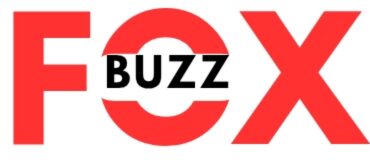sports mockery bears have long been a source of entertainment, passion, and national pride, but they also serve as fertile ground for humor and satire. Among the many forms of comedic commentary that exist in the sports world, one of the most intriguing and unique approaches is the concept of sports mockery bears. This phrase, though seemingly whimsical, encapsulates a particular kind of sports-based humor that combines playful mockery, exaggerated persona, and a love for the game. But what exactly does “sports mockery bears” mean, and how has it found its place in sports culture?
In this article, we’ll delve into the world of sports mockery bears, unpacking what this term might represent, how it has evolved, and its influence on the relationship between sports fans and athletes. From its playful use in memes and online culture to its appearances in cartoons and media, this concept plays a unique role in the broader conversation about sports entertainment.
What Are Sports Mockery Bears?
At its most basic, the term sports mockery bears can be understood as a creative and humorous representation of a “bear” character used to mock or satirize a particular sport, athlete, or sports culture. The idea of using animals, specifically bears, as a humorous symbol in sports media is not new. Bears are often associated with strength, dominance, and fierceness in popular culture, so using a bear to mock sports figures, whether through memes, cartoons, or satirical commentary, creates a humorous contrast between the animal’s raw power and the sometimes absurd situations athletes find themselves in.
While “sports mockery bears” might not refer to a widely recognized official term, it brings together several key elements:
Humor and Mockery: Sports fans love to poke fun at players, teams, and coaches, especially after a poor performance or controversial play. Using a bear to convey mockery amplifies the comedic effect, as it combines the toughness of the bear with the absurdity of the situation.
Exaggerated Representation: A bear can symbolize both physical prowess and, in many cases, an exaggerated or caricatured version of an athlete’s personality. These over-the-top depictions often highlight the humorous aspects of sports, from underdog victories to blatant mistakes.
Cultural Satire: Just as sports fans love to celebrate victories, they also embrace satire. The mockery of athletes or events often goes beyond just lighthearted teasing and veers into social commentary, addressing the spectacle, commercialization, and sometimes the absurdity of professional sports.
Origins and Evolution of Sports Mockery
While the specific phrase “sports mockery bears” might not have deep historical roots, the idea of mocking athletes using exaggerated or playful imagery has been around for centuries. Sports satire can be traced back to the early days of print media, with caricatures and cartoons poking fun at sports figures in newspapers and magazines. However, the use of animals, particularly bears, adds a new layer of symbolism.
- The Role of Animals in Sports Humor
Bears, like other animals, have been employed in popular culture as symbols of power, aggression, and raw physicality. In the context of sports, a bear might represent a tough competitor or an athlete who has become the subject of exaggerated critique. By portraying the athlete as a bear or as someone who interacts humorously with a bear, satirical commentary can emphasize the absurdity of sports situations, like a player misfiring a game-winning shot or a coach making a peculiar call.
The concept of animal-based mockery isn’t new either—think of the “wild boar” in football mascot humor or the “eagle-eyed” referee jokes in basketball. Bears simply fit into this tradition as powerful, often misunderstood creatures, whose actions can be humorously exaggerated to provide insight into the world of sports.
- The Digital Age and Meme Culture
In recent years, the growth of meme culture and social media has made sports mockery more accessible and widely recognized. Platforms like Twitter, Instagram, and TikTok have given birth to viral videos and memes that highlight athletes’ mistakes or “out-of-character” moments. In some cases, these moments are depicted with animals like bears, adding an extra layer of humor.
For example, if a famous athlete misses a crucial penalty in a match, memes might circulate showing the athlete’s face superimposed onto a bear’s body, with captions exaggerating their failure or triumphs in an exaggerated way. These bear-based sports mockery memes don’t just mock; they enhance the overall narrative, turning the athlete’s blunder into a source of collective amusement.
Sports Mockery Bears in Media and Pop Culture
- Cartoons and Animated Shows
Cartoons and animated shows have long used animals to represent various human traits or exaggerate behaviors for comedic effect. Bears, with their lumbering movements and ferocious reputations, often make an appearance in sports-related humor. A perfect example can be seen in various sports-based animated series, where animals are anthropomorphized and used to lampoon the antics of human athletes.
Shows like Family Guy, The Simpsons, and South Park frequently use animals to poke fun at sports events, athletes, or the cultural obsession with winning. Imagine a scenario where a “sports mockery bear” is featured in an episode, attending a professional game, only to get caught up in the ridiculous antics surrounding a player’s failed performance. This use of the bear as both a character and a symbol of sports mockery allows the narrative to blend humor, social critique, and entertainment.
- Social Media Influences
The rise of online sports communities has helped solidify the idea of sports mockery bears in the digital landscape. Social media platforms host viral memes and posts that quickly spread among fans, especially during significant sporting events like the Super Bowl or World Cup. In these online spaces, fans creatively use bears and other animals to mock particular players, teams, or even referees.
Take, for example, the world of fantasy sports, where owners are often quick to mock or “bear down” on players who underperform during the season. Social media groups and meme pages dedicated to specific sports or teams will often use animals, including bears, to personify these mockery moments. The bear becomes the exaggerated version of a player’s shortcomings—whether it’s missing a crucial play, making an egregious foul, or losing the game for their team.
Why Sports Mockery Bears Matter
- Lighthearted Entertainment
At its core, sports mockery using bears serves as lighthearted entertainment. Fans love to laugh at the antics of their favorite players or laugh off the frustrations of a particularly disappointing match. By adding a humorous and exaggerated element like a bear, sports fans engage in a form of shared amusement that brings them closer together, making them feel a sense of camaraderie through collective humor.
- Critique and Social Commentary
Sports mockery isn’t just about laughing at someone’s misfortune; it’s also about critiquing the nature of the sport itself. Whether it’s the over-commercialization of certain events, the pressure placed on athletes, or the exaggerated public expectations placed on teams, sports mockery bears can serve as a tool for social commentary. These exaggerated “bear” caricatures reflect the absurdity of fame, fortune, and the relentless nature of competitive sports.
- Amplification of Fan Culture
In many ways, sports mockery bears also amplify fan culture. Fans often create exaggerated representations of athletes, coaches, and even referees to either highlight their perceived flaws or poke fun at their larger-than-life personas. This hyperbole, embodied in the “bear” or other animal forms, gives fans an outlet to express their frustrations, joy, or humor in an accessible and entertaining manner.
Conclusion: The Power of Humor in Sports
While “sports mockery bears” might sound like an odd and niche concept, it’s an example of how humor, creativity, and cultural commentary intersect in the world of sports. These playful, exaggerated representations of athletes through the symbol of a bear help create a space for fans to express themselves, poke fun at their heroes, and reflect on the sometimes absurd nature of sports culture.
Whether it’s through memes, cartoons, or animated shows, the concept of sports mockery bears showcases the essential role that humor plays in making sports even more entertaining and relatable. So the next time you see a meme featuring a bear mocking a football star or a basketball legend, remember that it’s not just about the joke—it’s about creating a shared experience in the colorful world of sports.



